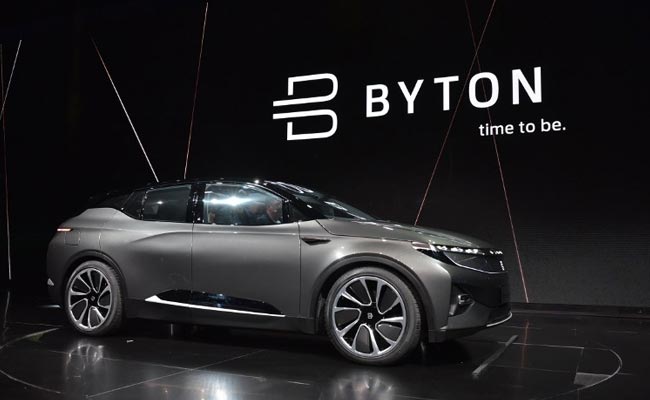A Chinese startup revealed its vision for the vehicle of the future Sunday, guaranteeing to provide an “intuitive and intelligent” automobile to worldwide markets starting next year from around $45,000.
The electric-powered concept car revealed by Byton at the Consumer Electronics Show in Las Vegas is promoted as a computing device on wheels, geared up with a “digital” lounge featuring a panaromic display serving as a hub for navigation, entertainment as well as monitoring the health of its occupants.
Backed by over $200 million from investors consisting of Chinese tech giant Tencent, Byton– whose name was decided to recommend “bytes on wheels”– is amongst the current entrants to a congested field of startups and established players wanting to replicate Tesla in the race for a brand-new kind of car which can be adjusted for autonomous driving.
“This is an item which is tailor-made for the future, which is autonomous and shared,” stated Daniel Kirchert, president and co-founder of the Nanjing-based startup.
Byton, led by previous executives from Tesla, BMW, Apple and Google, stated it anticipates to release in China by 2019 and in the United States and Europe by 2020.
“This will be the most innovative vehicle in the market as of 2019,” stated chairman and chief executive Carsten Breitfeld, a former BMW executive, during a presentation among the first media events at the big electronics show.
The Byton car will use facial acknowledgment to unlock and adapt to the motorist and provide a range of other ways to interact consisting of voice control with Amazon Alexa, touch and gesture.
It will consist 5G connectivity to the internet cloud and improve its functions with artificial intelligence.
“It will enhance your experience the more it knows you,” stated Kirchert.
While other concept electric cars have been promoted at costs of $100,000 or more, the new Byton will face rivalry from the Tesla Model 3 and offerings from significant automakers.
Byton stated the cars will have a range of over 500 kilometers (300 miles) before requiring a recharge and will have the ability to “top up” its battery in 15 to 30 minutes.
It will be offered with “level 3” autonomy which allows some functions without a motorist and be capable of “level 4” for near-autonomous function from 2020, as per the company.

